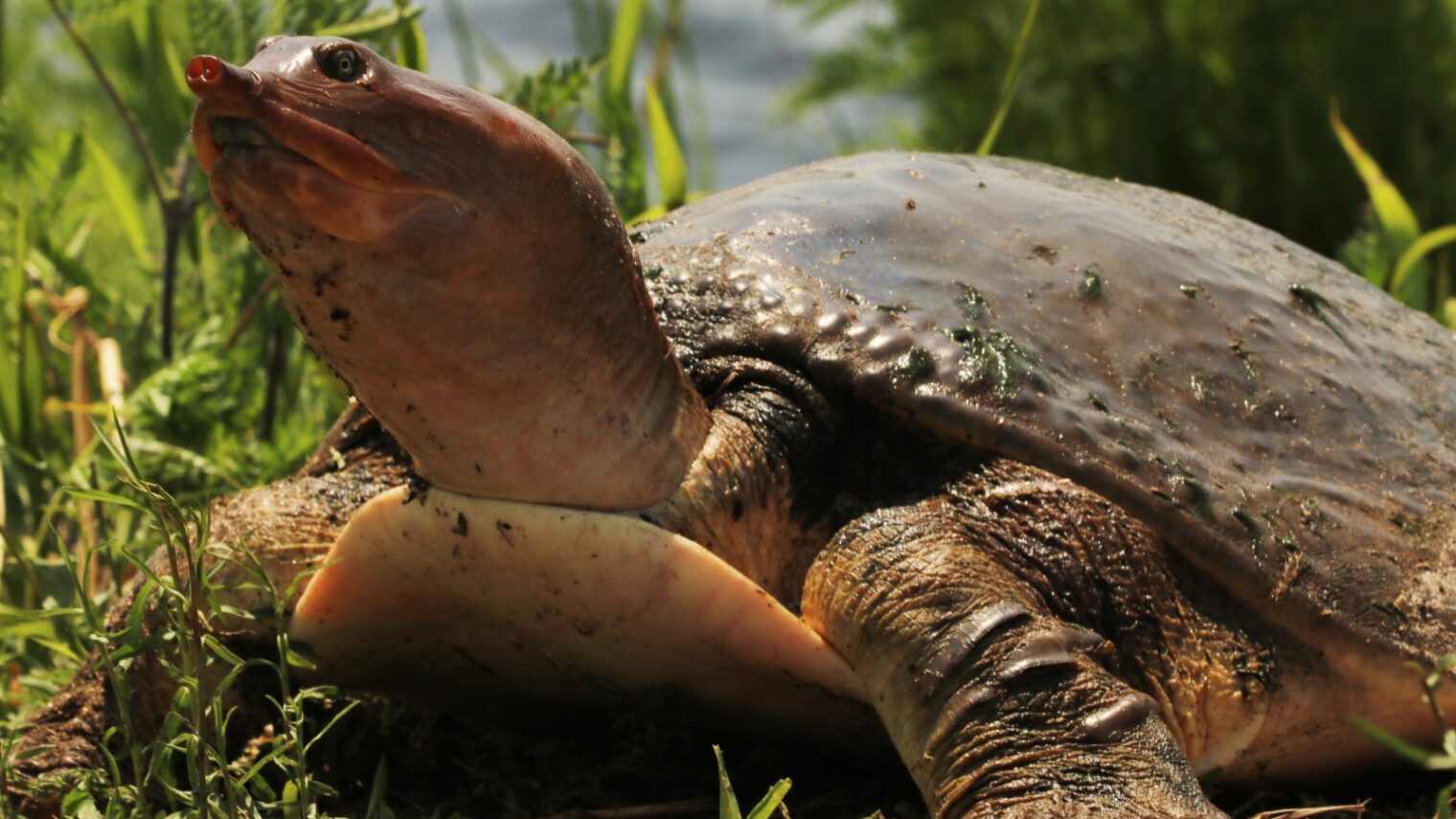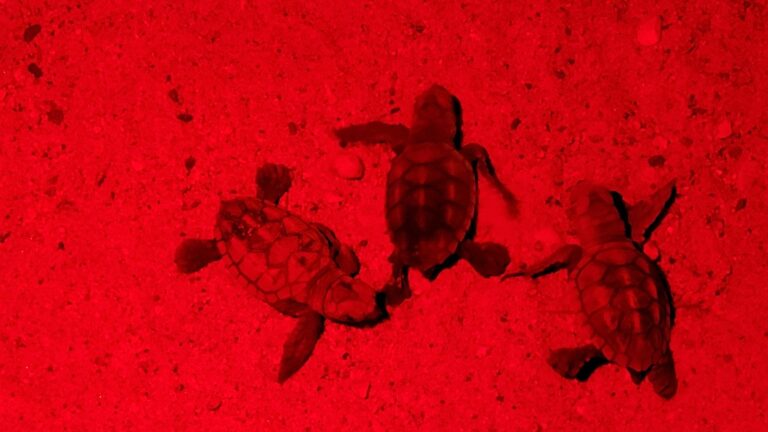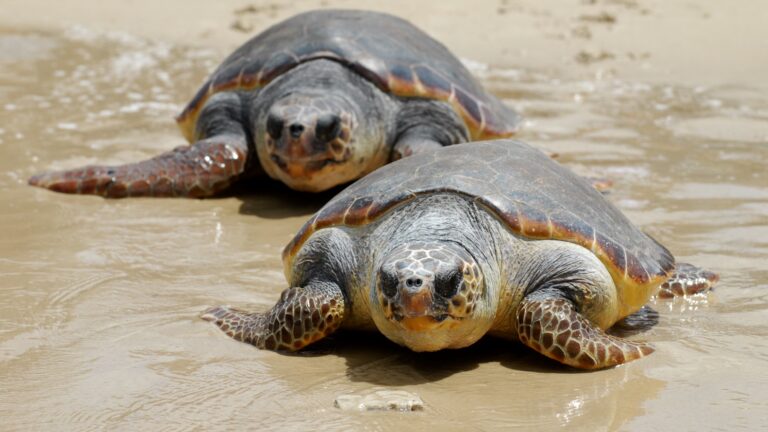One evening in May, the Kishon River Authority received an urgent call about a softshell turtle apparently hit by a vehicle near the Haifa oil refineries. The 43-mile-long Kishon River empties into Haifa Bay.
The authority’s supervisor, Alon Ben-Meir, rushed to the scene and wrapped the turtle – which was near a nest of eggs — in a damp towel, noting signs of fracture and bleeding on her back and abdominal armor.
The mother turtle was transferred immediately to the national Sea Turtle Rescue and Rehabilitation Center in Mikhmoret for veterinary treatment.
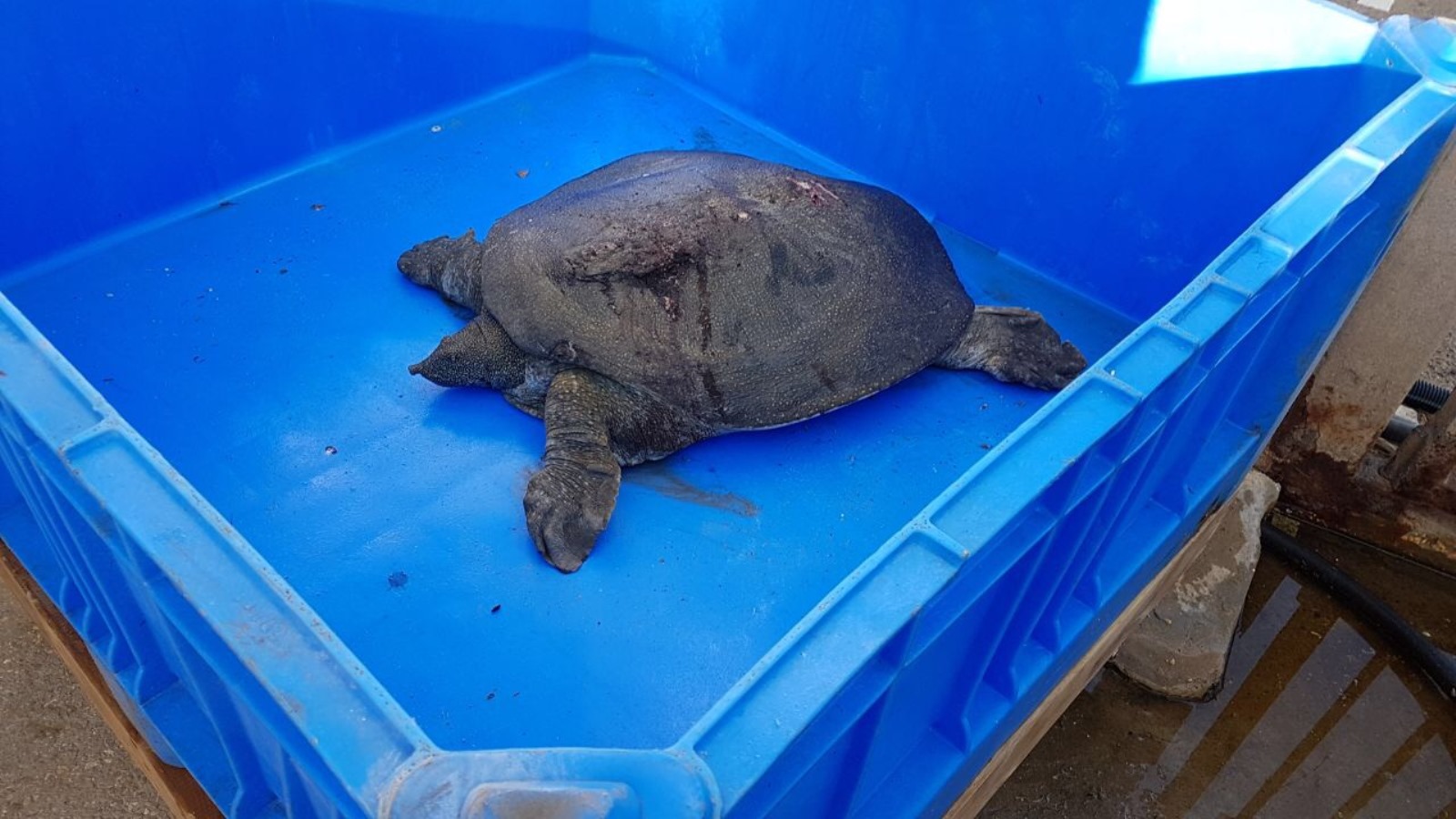
After she receives a clean bill of health, she will join hundreds of other softshell turtles that have either found their way to the Kishon River in the past 15 years or have been brought there from other parts of Israel.
Yonatan Shavit, head of the environmental department of the Kishon River Authority, explains that softshell turtles are an endangered species. They lived in the Kishon at one point in time, but as the river became polluted they left and were found only in the Alexander River that flows into the Mediterranean north of Netanya.
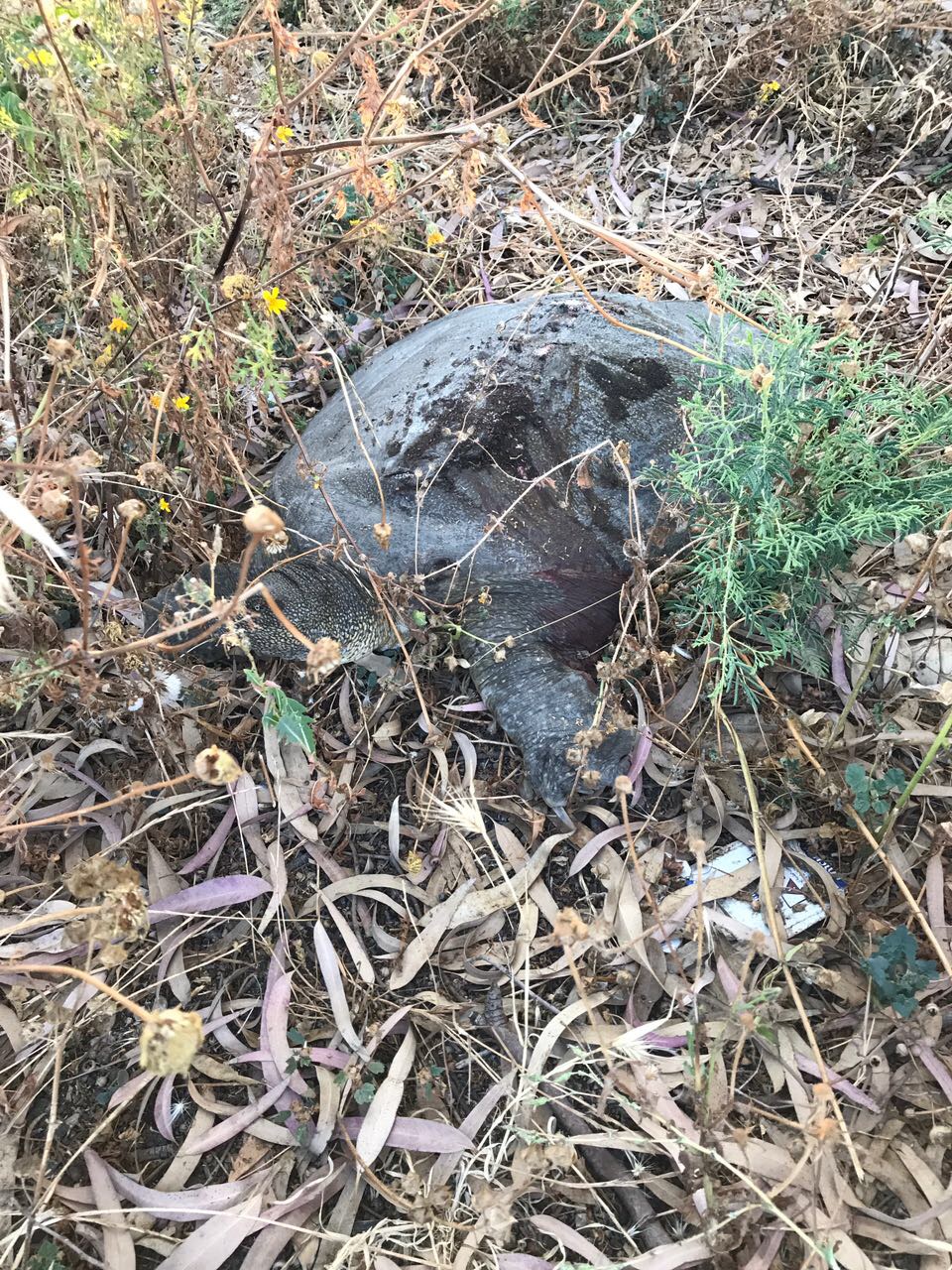
“Around 2002, after we achieved an improvement in water quality, softshell turtles started appearing again in the Kishon. It was a big surprise,” Shavit tells ISRAEL21c.
Genetic tests showed that these turtles were coming from waters north of Israel, in Lebanon and Syria, apparently washed into the sea and seeking a new habitat.
Their choice of the Kishon River signaled that it had been cleaned up sufficiently to support a softshell turtle population, and the authority then began bringing in softshell turtles from the Hula Valley Reserve in the Upper Galilee.
Shavit explains that many softshell turtles had been released there in the 1960s and eventually began causing ecological problems because it was not their natural habitat.
“Right now they have too many, so when they find nests of softshell turtle eggs in the Hula Valley Reserve, they incubate them and give us the babies once they’re hatched,” says Shavit. “Since this program began, we’ve released 573 softshell turtles from the Hula into the Kishon.”
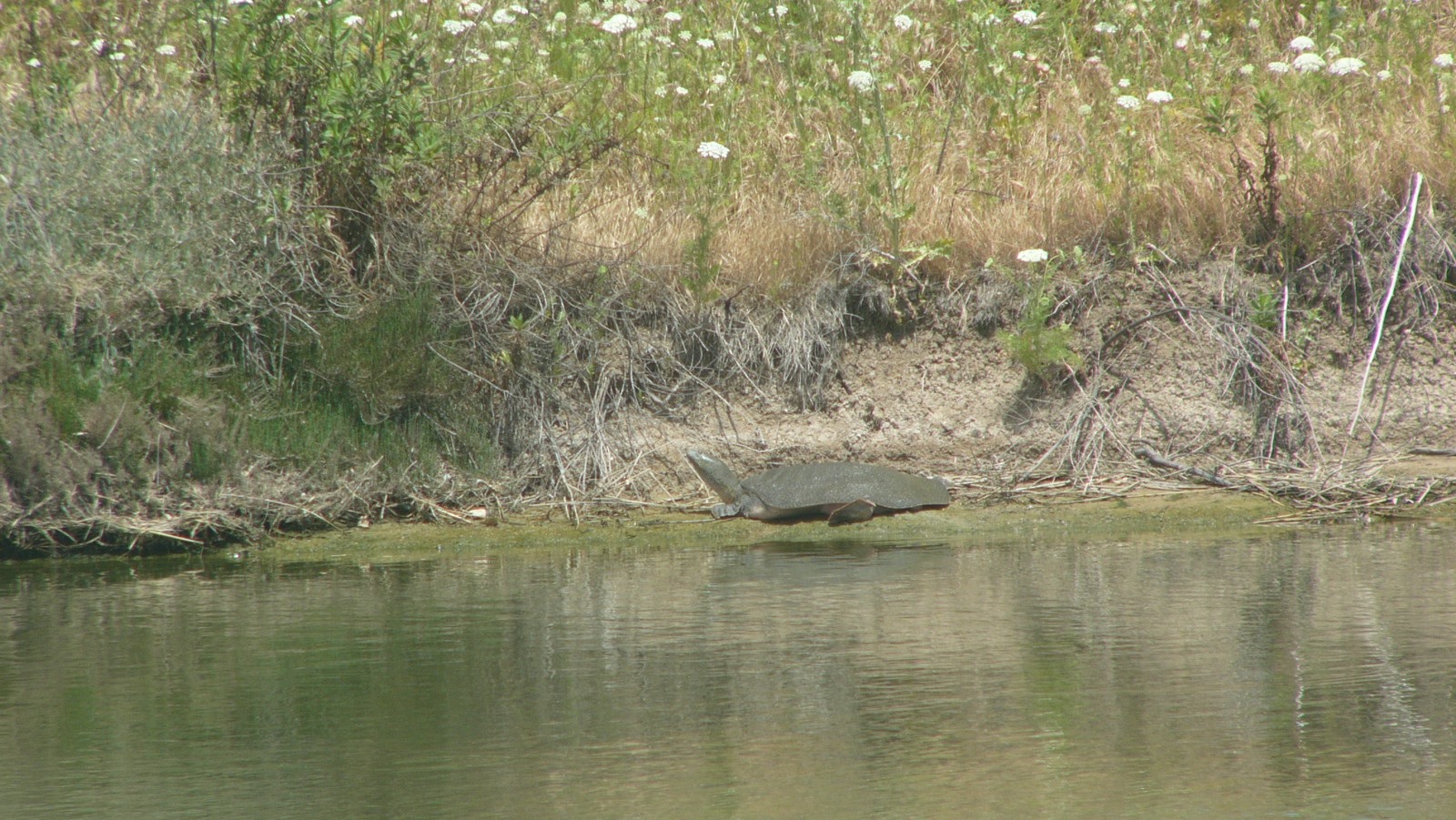
It’s a win-win situation: Taking the turtles from the Hula restores the ecological balance and introducing them into the Kishon strengthens the small population that found its way there naturally.
“You need diversity,” says Shavit. “It’s part of the restoration process of the Kishon.”
Although 573 seems like a lot of turtles, however, only about 2 percent of hatchlings reach adulthood. “Reptiles lay a lot of eggs because only some of them will survive,” says Shavit.
Sadly, the eggs in the nest of the injured turtle in Haifa were found by predators before authorities were able to come back to get them. But once their mother is fully recovered, she presumably will build a new nest on the banks of the Kishon. These nests are carefully counted in surveys done by the Kishon River Authority and the Nature and Parks Authority since 2007.
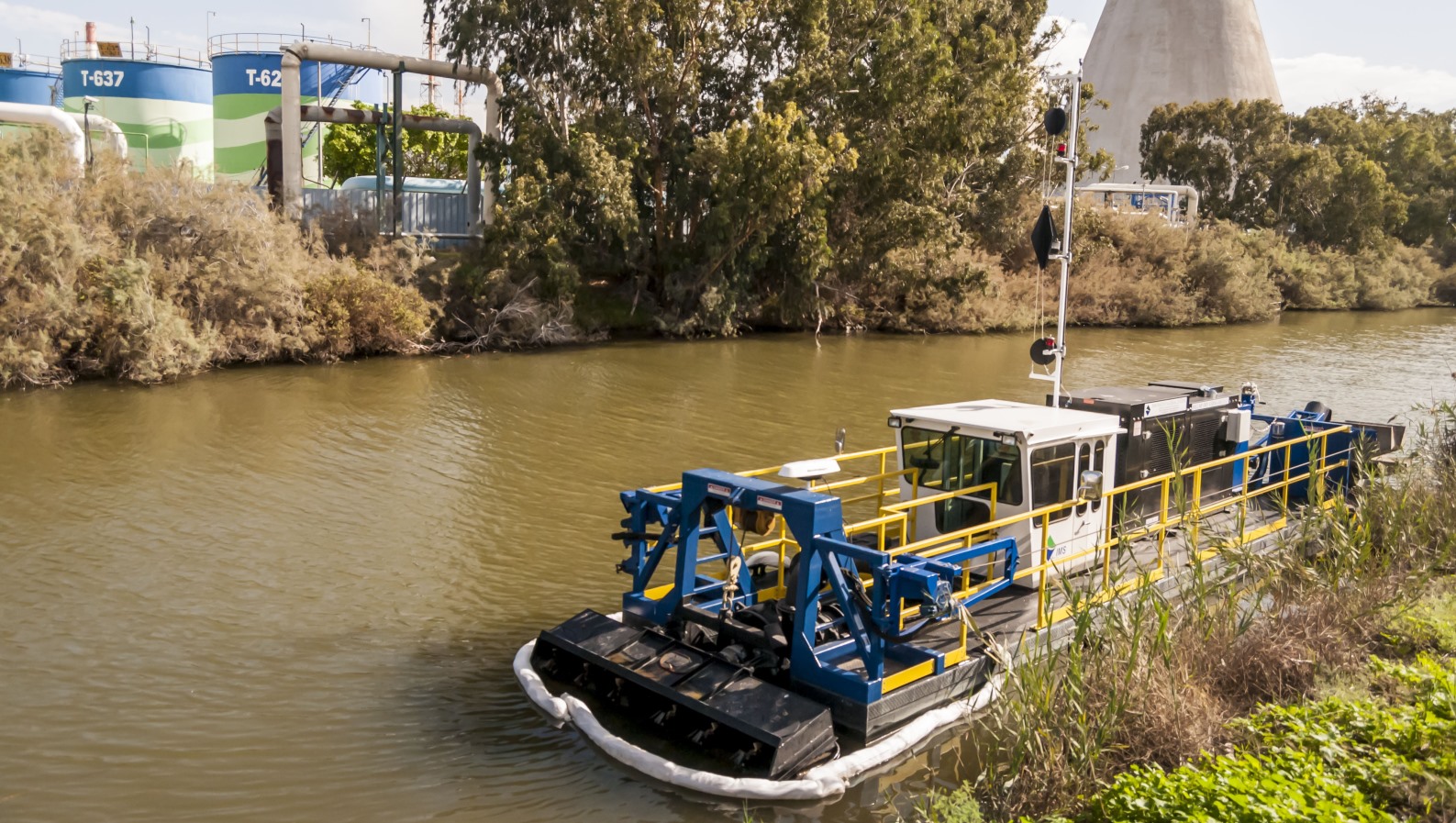
“Over the years, we have returned hundreds of softshell turtles to the Kishon. We preserve the ecosystem to the most detailed extent possible,” said Sharon Nissim, director general of the Kishon River Authority.
“We call on the public to contact us immediately about any damage to the flora and fauna in the river and its surroundings.”




